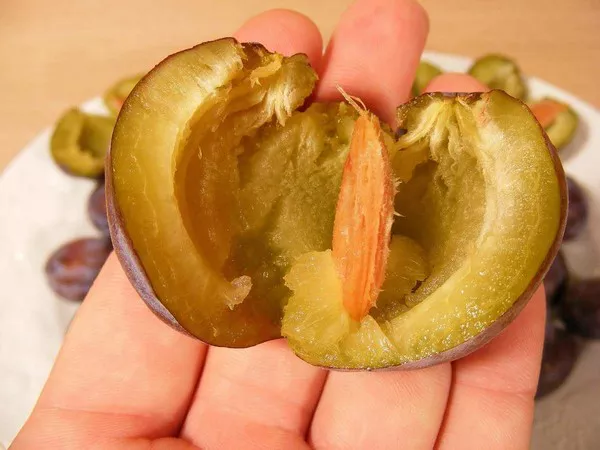Nature, in its exquisite beauty, conceals a subtle danger within some of its most alluring creations – the seeds of certain fruits. While fruits are universally celebrated for their flavors and health benefits, an exploration into the world of their seeds reveals a cautionary tale of toxicity. In this article, we embark on a journey to uncover the ten most poisonous fruit seeds, shedding light on the potential dangers lurking within these seemingly harmless edibles.
The 10 Most Poisonous Fruit Seeds
1. Apple Seeds
Chemical Culprit: Amygdalin, a cyanogenic glycoside found in apple seeds, can release hydrogen cyanide when the seeds are crushed or chewed.
Toxicity Levels: While the average person would need to consume a considerable quantity of apple seeds to experience adverse effects, the presence of amygdalin emphasizes the importance of cautious disposal.
2. Apricot Seeds
Hidden Threat: Apricot seeds contain cyanogenic glycosides, which, when ingested in large quantities, can release lethal amounts of hydrogen cyanide.
Symptoms of Poisoning: Cyanide poisoning from apricot seeds can lead to symptoms such as dizziness, nausea, and, in severe cases, respiratory failure.
3. Cherry Pits
Cyanide Presence: Cyanogenic glycosides in cherry pits pose a potential threat, with cyanide release upon crushing or damaging the pits.
Rare but Possible: While accidental poisoning from cherry pits is rare, caution is advised during the handling and consumption of these pits.
4. Peach Seeds
Cyanogenic Glycosides Content: Peach seeds contain cyanogenic glycosides, and the potential for cyanide release exists when these seeds are crushed or damaged.
Moderation is Key: While swallowing a whole peach seed is unlikely to cause harm, caution is advised to avoid the consumption of crushed or damaged seeds.
5. Plum Seeds
Cyanide Potential: Plum seeds, akin to other stone fruits, harbor cyanogenic glycosides, and caution is required when processing or crushing these seeds.
Reducing Risks: Proper disposal measures and avoiding the consumption of crushed or damaged plum seeds mitigate potential cyanide exposure.
6. Nectarine Seeds
Cyanogenic Glycosides Similar to Peaches: Nectarine seeds share similarities with peach seeds, containing cyanogenic glycosides with the potential for cyanide release.
Safe Practices: Swallowing whole nectarine seeds is generally safe, but caution is advised to prevent the ingestion of crushed or damaged seeds.
7. Cherry Laurel Seeds
Prunus Laurocerasus: The seeds of the cherry laurel plant contain cyanogenic glycosides, and crushing these seeds can release hydrogen cyanide.
Extreme Toxicity: Ingesting cherry laurel seeds can lead to severe poisoning, emphasizing the importance of awareness and caution.
8. Strychnine Tree Seeds
Strychnine Content: The seeds of the Strychnine tree contain strychnine, a potent neurotoxin that can lead to muscle spasms and respiratory failure.
Highly Toxic: Ingesting even small quantities of strychnine tree seeds can be fatal, underscoring the need for utmost caution.
9. Rosary Pea Seeds
Abrus Precatorius: The seeds of the rosary pea contain abrin, a toxalbumin that inhibits protein synthesis and can be lethal in small doses.
Lethal Potential: The vibrant appearance of rosary pea seeds belies their extreme toxicity, making them a serious health hazard.
10. Castor Bean Seeds
Ricin Toxin Presence: Castor bean seeds contain ricin, a potent protein toxin that disrupts cellular protein synthesis.
Extreme Toxicity: The extraction of castor oil involves a meticulous process to remove ricin, highlighting the danger posed by these seeds.
Conclusion:
In the mesmerizing realm of fruits, the seeds harbor a silent peril – the potential for toxicity. While the risk of poisoning is generally low with typical fruit consumption practices, understanding the dangers associated with specific seeds is paramount. Through awareness, education, and a cautious approach to handling and consuming these fruits, individuals can navigate the world of fruits safely, savoring their flavors without succumbing to the hidden perils within.
See Also: Top 10 Dangerous (& Sometimes Deadly!) Trees
You Might Be Interested In:
- 10 Best Trees For Year-Round Interest
- Flowers – You May Not Know” href=”https://www.validdownloads.com/archives/1554″ rel=”bookmark”>Top 12 Long-Lasting Flowers – You May Not Know
- 10 Most Expensive Monstera Varieties

























